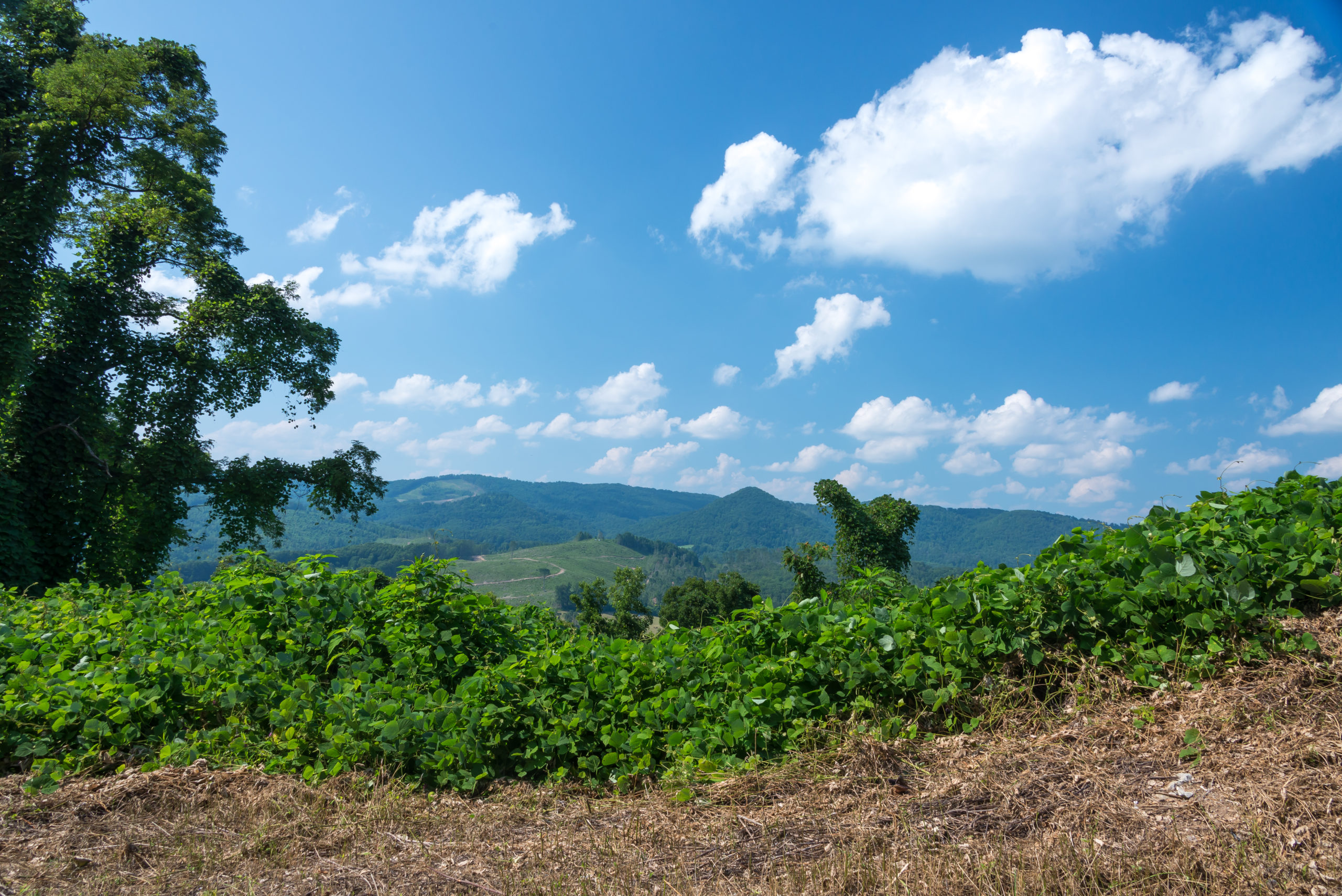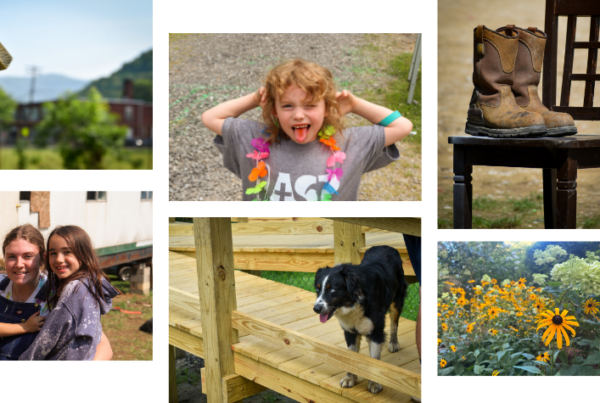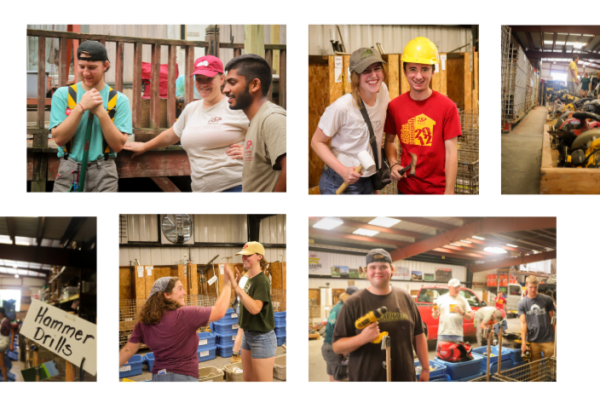Throughout the summer, I have spent time in seventeen counties across five states.
I spent eight weeks traveling between front porches, living room couches, homemade biscuits, and the homes of people who choose to live in Appalachia. I learned many things this summer, like the best podcast to listen to during a three-hour car ride and which county had the prettiest sunrise, but most importantly, I learned the different ways that a place can be a home.
The second week of the ASP summer, I spent some time in Jonesville, Virginia. While in Jonesville, I got into a conversation with an adult group leader about why we are repairing homes that seem to be ‘too far gone’ and why people ‘choose to live in homes that need to be repaired.’ Eventually our conversation reached the important question – why do people choose to stay in Appalachia when, from an outside perspective, leaving seems to be an easy solution? As I travelled throughout the summer, I realized this was a common question.
When I was confronted with this question, I often turned to my own experiences, to the ways that Appalachia has felt like home for me. And though I may be able to string my feeling of home into an eloquent sentence, Appalachia will never be home for me in the way it is home for the families who live here, who have spent their lives in the same house, holler, or town. After getting into the conversation of place several times, I decided to start asking the families I met why I have chosen to stay, why I will continue to stay, in their homes in Appalachia.
Family is very important in communities throughout Appalachia, and those relationships have led many people to stay. In Breathitt County, Kentucky, I pulled into a holler looking for a woman named Louise. At the front of the holler, I saw a group of volunteers and an elderly woman standing on her front porch. I assumed this was Louise, so I parked in her driveway and walked to the porch. After talking with her for a few minutes, I learned this was not Louise’s house, and this woman was not Louise. Ginny is Louise’s sister-in-law, and Louise lived further in the holler. Their family filled the entire holler, and Ginny explained that she will never leave her home, never leave Breathitt County, because she grew up swimming in these creeks and climbing through these hills.
Amanda, a mother of five, has lived in Cocke County, Tennessee her whole life. Despite going through bouts of financial difficulty, she chooses to stay because she “feels love in this place.” She chooses to stay in this place because she is surrounded by people, by a community of family, who make her feel loved.
Mary, an elderly woman in McCreary County, Kentucky, lives in the home she inherited from her father. When her parents fell ill, she moved into her childhood home to take care of them, and when they passed away, her father left the home in her name. She is a daddy’s girl, and she chooses to stay because she promised him she would. She walked me through her garden, taught me how to know when a sunflower is ready to bloom, and shows how a home can be the strongest memory of a person.
Similarly, Joyce chooses to stay because her home in Johnson County, Tennessee is where she has the strongest memory of her husband, who passed away a few years ago. After he passed and she was physically unable to make the necessary repairs, she filled her days with prayer and clung to the memories of him walking between rooms in their thin-walled home. She admits that leaving Johnson County seems to make sense for several reasons, but those reasons are overshadowed by the feeling of familial love and connection that she feels in her home.
I could tell the stories of dozens of people who stay in Appalachia because they are surrounded by family, but some people choose to stay for other reasons, like coal mining or the peace from living in the country.
Pete keeps his family in Logan County, West Virginia because he loves his job as a coal miner. When I went to their home for the first time, Pete’s mining clothes were sprawled along the fence and porch railing. When I met him, he began talking about his career as a miner and proudly asked if I had seen his clothes in the front yard. Robert, a man in Harlan County, Kentucky, is also proud of his career as a coal miner. Robert has been injured several times, and due to these injuries, he is no longer able to work in the mines, but as he leaned against the wooden railing of his new front porch, he told me stories about his favorite parts of being in the mines. Before I left, he pointed out the drill holes on the mountainside behind his home. He was proud that his home sits on a former mining site.
Barbara lives in Rutherford County, North Carolina. Her mobile home sits about twenty minutes away from the nearest downtown. Even though she drives into town fairly often, especially during the summer when she takes her grandson to the pool, she likes living out in the country because it is quiet, and she knows she is safe. Elizabeth, a woman in Leslie County, loves her home because it is quiet. When she sits on her front porch, she can hear the birds sing as the move between trees, and she loves to fill her days with birdsongs.
After asking different people why they choose to stay in Appalachia, it seems that people choose to stay because this is home. This is the place where they grew up, where they developed their individual identity, where they fell in love, and where they experienced heartbreak. People choose to stay in this place because they are comfortable with the way fog unravels along the road in the morning and hills roll into hollers full of family history.
It can be hard for many people to imagine living in rural Appalachia, to imagine living with damaged floors, to imagine living paycheck to paycheck, or to imagine living without a paycheck at all. Even though you may not understand why people choose to live in Appalachia, or agree why families decide to stay, those opinions should not hinder your ability to truly, as ASP’s founder, Rev. Glenn “Tex” Evans, always reminded us: “accept people right where they are, just the way they are.”
I learned many things this summer, like the best podcast to listen to during a three-hour car ride and which county had the prettiest sunrise, but most importantly, I learned the different ways that Appalachia is home. I learned that, for many people, Appalachia is that place.
Jamie Tews is the Advancement Storytelling Intern this summer writing a weekly blog series titled “This Must Be The Place.” Prior to this summer, she was on staff in Breathitt County, Kentucky in 2016, Leslie County, Kentucky in 2017, and roamed around Appalachia as a staff liaison in 2018. She just graduated from Indiana Wesleyan University with a Bachelor’s degree in English and Writing, and she has plans to pursue an MFA at the University of North Carolina-Wilmington in the fall.
…





